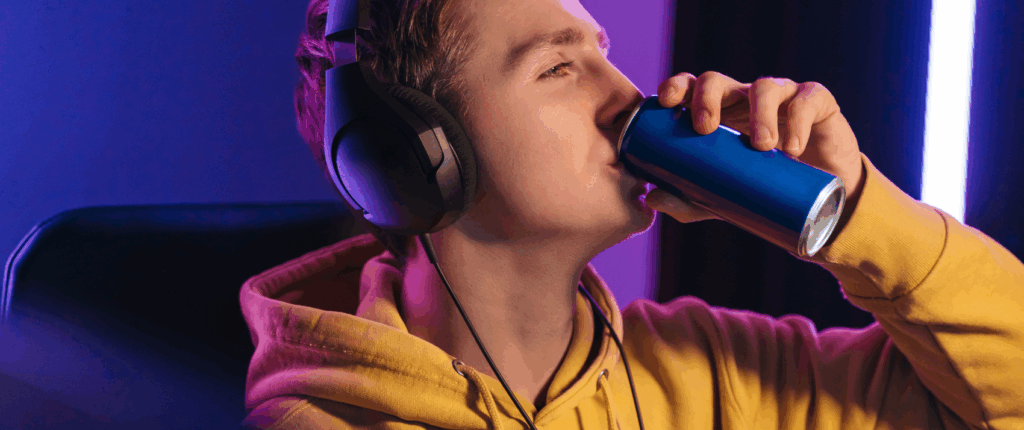In a world where productivity, performance, and alertness are paramount, energy drinks have carved out a booming multi-billion-dollar industry. Marketed as the fuel for modern life—be it for athletes, students, professionals, or night-shift workers—these colourful cans promise quick energy, enhanced focus, and boosted endurance. But beneath the surface lies a complex story of benefits, risks, and misunderstood timing.
Are energy drinks a legitimate performance aid, or are we playing with fire by consuming them indiscriminately? Let’s unpack the science, psychology, and circumstances surrounding these powerful potions.
What’s in an Energy Drink?
Energy drinks typically contain a combination of the following:
- Caffeine: The primary stimulant, ranging from 50 mg to over 300 mg per can.
- Sugar: Often high, though sugar-free versions exist.
- Taurine: An amino acid that may support neurological development and regulate water and mineral levels.
- B vitamins: To aid energy metabolism.
- Herbal extracts: Like ginseng or guarana, touted for alertness and endurance.
- Other additives: L-carnitine, inositol, glucuronolactone, etc., which claim various cognitive and metabolic benefits.
The Pros: When Energy Drinks Work
- Enhanced Alertness and Focus
Caffeine, the main active ingredient, is well-documented to improve concentration, reaction time, and short-term memory. When used strategically—such as during exams, long drives, or late-night work—energy drinks can offer a significant cognitive edge.
- Athletic Performance
When consumed before intense workouts or endurance events, energy drinks may improve stamina, reduce perceived effort, and help delay fatigue. This is especially true when caffeine is combined with taurine and carbohydrates.
- Mood and Motivation
In moderate doses, energy drinks can improve mood and reduce feelings of tiredness or boredom. This can be beneficial in mentally draining tasks or during slumps in motivation.
The Cons: What’s the Price of the Buzz?
- Cardiovascular Risks
High caffeine doses can elevate heart rate, increase blood pressure, and lead to palpitations or arrhythmias. In susceptible individuals—especially those with underlying heart conditions—this can be dangerous.
- Sleep Disruption
Caffeine has a half-life of about 5–6 hours, meaning that an energy drink consumed at 4 PM could still be half-active at 10 PM, sabotaging your sleep quality. Poor sleep, in turn, leads to greater dependence on stimulants, creating a vicious cycle.
- Sugar Overload
Many energy drinks contain up to 30 grams of sugar or more per can. This contributes to weight gain, insulin resistance, and increased risk of type 2 diabetes—not to mention the dreaded “sugar crash” that often follows.
- Dependency and Tolerance
With regular use, your body may build tolerance to caffeine. You may need more to achieve the same effect, leading to a cycle of dependency. Abrupt withdrawal can lead to headaches, irritability, and fatigue.
- Psychological Impact
Energy drinks can mask fatigue but do not fix the underlying problem. This illusion of capability can push people—especially students or athletes—past healthy limits, leading to burnout or injury.
When Is It Best to Have an Energy Drink?
✅ Ideal Scenarios:
- Pre-workout: About 30 minutes before exercise for increased endurance and energy.
- Before mentally demanding tasks: Like exams, long drives, or meetings where alertness is crucial.
- During jet lag or shift work: To help reset your body clock temporarily or maintain alertness in unnatural hours.
In these situations, energy drinks can be tools—not crutches—when used sparingly and mindfully.
When Should You Avoid Energy Drinks?
❌ Not Recommended:
- Late afternoon or evening: Caffeine consumed after 2 PM can interfere with night-time sleep.
- On an empty stomach: This can cause stomach upset, jitters, or a sharper crash.
- In combination with alcohol: This can mask the effects of intoxication, leading to risky behaviours.
- If you’re under 18 or pregnant: Due to the heightened sensitivity to stimulants and unknown long-term effects.
- When already highly stressed or anxious: Caffeine can exacerbate anxiety and nervousness.
A Balanced Perspective: The Real Question
Energy drinks are neither magic elixirs nor deadly poisons. They are tools—high-powered ones—that need careful handling. The real question is not “Are energy drinks bad?” but rather “Why do I feel the need for one?”
If you’re chronically fatigued, unfocused, or low on energy, perhaps it’s time to zoom out. Are you sleeping enough? Eating well? Managing stress? Drinking enough water? Sometimes the solution isn’t another can—it’s a change in lifestyle.
Final Thought
Energy drinks might give you wings—but only if you know when to fly.
Use them with awareness, not addiction. Time them with strategy, not spontaneity. And remember: true energy doesn’t come from a can—it comes from consistent, healthy choices that power your body and mind over the long haul.
Disclaimer – Healthi and its associates offers health and fitness information and is designed for educational and entertainment purposes only. You should consult your physician or general practitioner before beginning a new fitness program. You should not rely on this information as a substitute for, nor does it replace, professional medical advice, diagnosis, or treatment. If you have any questions or concerns about your health, you should always consult with a physician, general practitioner, or other qualified healthcare professional. Do not disregard, avoid or delay obtaining medical or health related advice from your healthcare professional because of something you may have read on our publications or lectures. The use of information provided though the urban wellness service is solely at your own risk and is not medical or healthcare advice.





